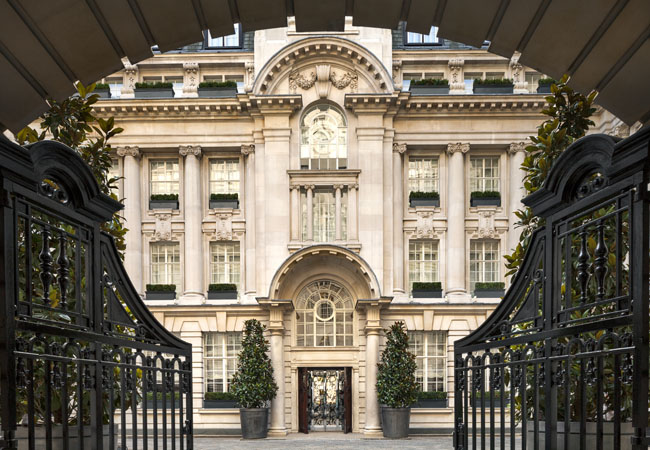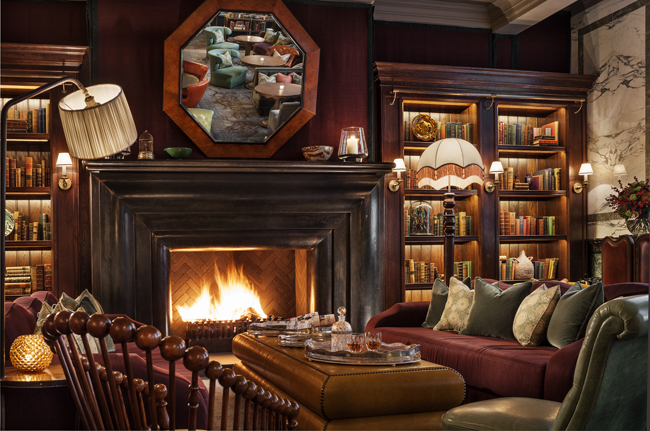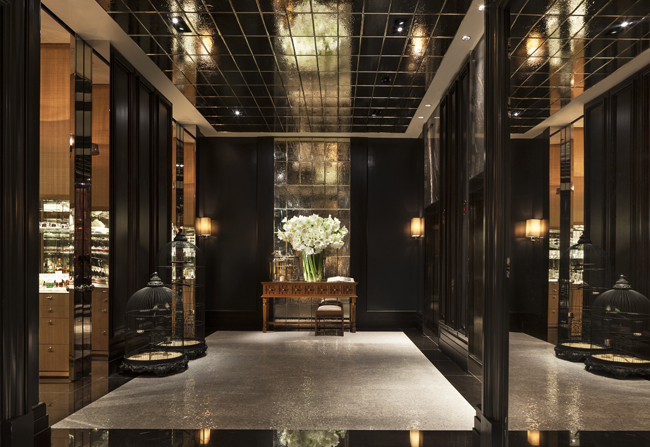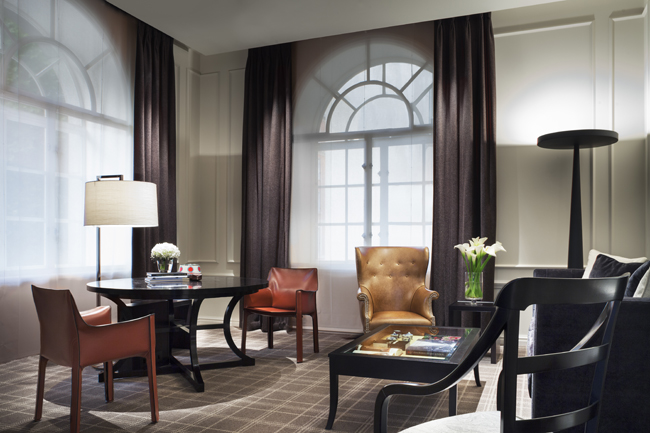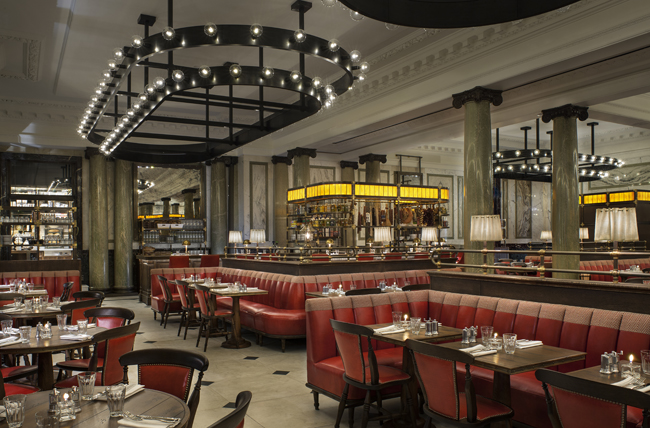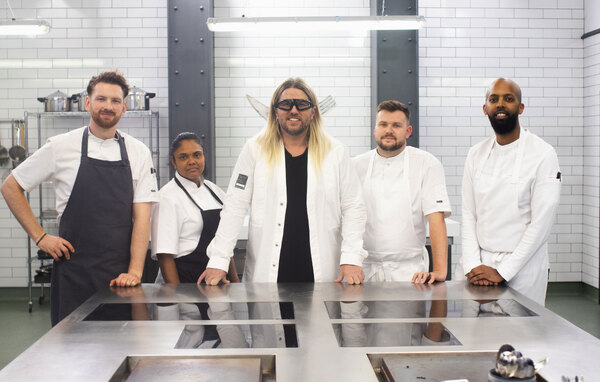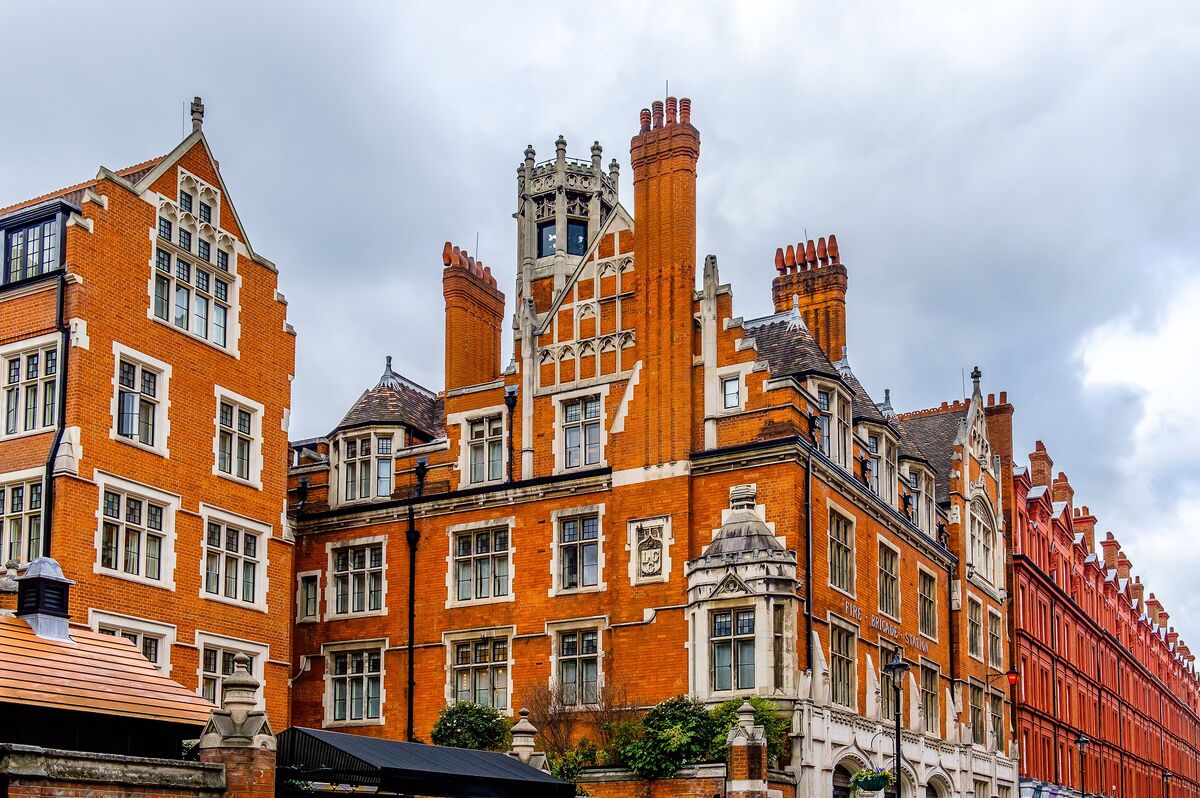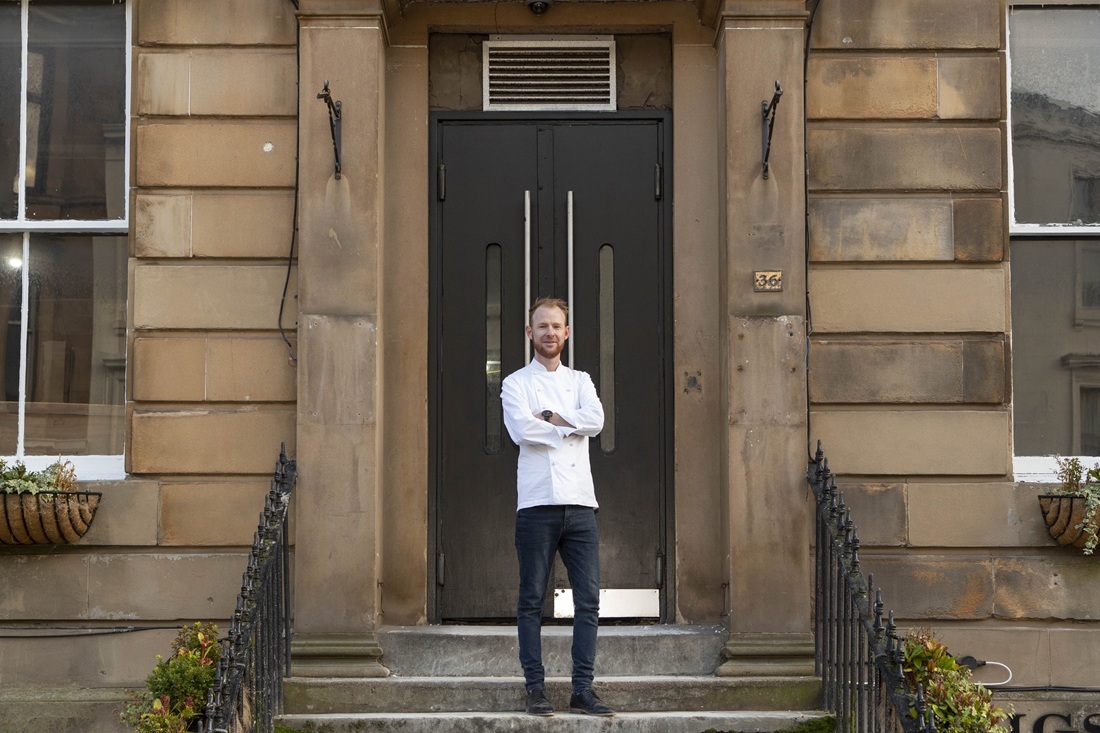How Michael Bonsor has helped transform the Rosewood London
Michael Bonsor, managing director of the Rosewood London, is in charge of one of the capital's most successful establishments, with a slew of awards to its name. Rosalind Mullen meets him to discover how he's managed to create a hotel offering a luxurious experience that is also loved by locals.
The fact that this 306-bedroom hotel exudes tasteful luxury without being stuffy has evidently fuelled its success. Since opening in October 2013, it has shown solid performance with a 10% year-on-year increase in revenue recorded in 2017. In the past six months it has earned a host of accolades, including the 2017 Catey award for Hotel of the Year â" Group, as well as being voted Best Hotel in London in the Condé Naste Traveler 2017 Readersâ Choice Awards. Previous to that, it was AA Hotel of the Year 2014-15 and Opening of the Year 2014 at the European Hospitality Awards.
Whatâs interesting is that the Rosewood London has made the Holborn site work, whereas the incumbent operator, Marriotâs Renaissance Chancery Court, was reported as âstrugglingâ. There are many reasons for that, though one man in particular has played a key role in driving through change: managing director Michael Bonsor, who came on board as hotel manager before the launch and stepped up to managing director last March, replacing Matthias Roeke.
Bonsor, however, is modest about his contribution: âWe had an £85m refurbishment to eradicate the previous hotel, we had the power of the Rosewood brand â" 40% of its clientele are North American â" and we have iconic sister properties, such as the Carlyle in New York and the Crillon in Paris.â
Even so, the domestic market was unfamiliar with the Rosewood brand as it had not had a presence in London since it relinquished management of the Lanesborough hotel in 2001. What helped make the location work is the hotelâs food and beverage outlets â" which account for 40% of hotel turnover. The hotel is close to the West End and five minutesâ walk from law firms in the nearby Inns of Court, with hard-hitters such as law firm Mishcon de Reya bringing international business, while companies such as Metro Bank and Sainsburyâs have headquarters nearby, ensuring that they resonate with local clientele and the international traveller.
As well as Scarfes Bar and the 160-seat brasserie-style Holborn Dining Room â" housing Londonâs largest gin bar â" diners can also choose from the Mirror Room, overseen by executive chef Amandine Chaignot, private dining rooms and pop-ups in the landscaped courtyard â" currently an outdoor Alpine ski lodge experience in partnership with gin brand Monkey 47.
Both were designed by Martin Brudnizki and have separate entrances in the archway leading to the hotel courtyard, so they donât feel like hotel outlets. âThe architecture works for us,â says Bonsor.
Life-long love
Hotels have held a fascination for Bonsor from an early age. Working in his parentsâ boutique hotel, Culduthel Lodge in Inverness [now Rocpool Reserve Hotel and Chez Roux restaurant], he âabsolutely loved it. It was fascinating to meet visitors from Australia and far-flung places. I was also lucky because I travelled around the world with my parents, staying in iconic hotels such as Raffles. I would wander round the hotels â" try to get behind the reception desk.â
happened to be on duty in the lobby. âFast forward a month and I had turned down Palm Beach and accepted a job at Four Seasons Boston. I started there back of house aged 21.
âIâd imagined a trainee programme front of house and I had bought lots of suits. What I didnât realise was that experience back of house was crucial â" but it was tough. There was a large workforce, few colleagues spoke English and communication was difficult.â
Six months later, he moved front of house, covering the bar, fine-dining and events. âIt was great. I saw different operations and got all-round F&B knowledge quickly.â
Moving on to Four Seasons New York, he describes his four years there as âinvaluableâ. Not only did he make his mark as director of restaurants for the launch of Michelin-starred restaurant LâAtelier de Joël Robuchon, he learned a lot about managing staff. âBeing exposed to the union environment in New York gave me a huge knowledge about employee relations. I probably spent 50% of my time in and out of HR there because of heavy unions. There is a large rule book to follow, but you need to embrace it. I remember one day a large group arrived, so I pitched in helping the porters to load bags. One of the porters took photos as evidence. Their argument was that if management had to help, they needed more porters on duty. We had to pay the three porters who werenât on duty that day, so it cost the hotel.â
While Bonsorâs time at the Four Seasons gave him a thorough grounding in a corporate, structured business, it was the four years he spent as F&B manager and then hotel operations manager at Claridgeâs on his return to London that exposed him to creative management. Not only was there the Noma pop-up and Christmas trees from leading fashion designers, including John Galliano, Bonsor also found himself involved with the BBC2 documentary Inside Claridgeâs during the year of the London Olympics. âIt was a brave decision. It was one of the first [hotel documentaries], but everyone was proud of what was produced.â
He was pleased that it showed the industry in a good light. â[Hospitality] has a bad image, which doesnât reflect the truth. In New York, it is taken more seriously. You feel you can have a wonderful career, you can make a difference and get paid well. We need to do a better job in the UK to inspire those going through education and attract them into the industry.â
The decision to move on and be part of the launch of Rosewood London as hotel manager came about after a chance conversation with the groupâs president, Radha Arora. âIt dawned on me that I needed to get involved in a hotel opening and get exposure to different objectives and skills. All of a sudden, you are working on project management, sales and marketing, communications… wearing different hats.â
One of the big challenges was starting without a client base. âComing from a world-famous 100-year-old hotel, that was daunting. I came from a bustling operation and 10 days later I was in an office with two people looking at spreadsheets. I joined in August and we opened two months later, so there was a lot to do in a short time. Your life becomes about snagging and meeting with interior designers, construction companies and testing out all the bedrooms three times.â
The F&B outlets needed urgent attention. The concept for the bar â" named Scarfes after cartoonist Gerald Scarfe â" hadnât been finalised and Bonsor found himself auditioning 60 bands for the barâs cabaret. âI didnât leave the hotel for four months,â he says.
He also had to embrace a less traditional approach to recruitment, avoiding F&B candidates with hotel résumés in favour of those from the best bars and clubs. âIf people are formally trained, it can become tired in a bar or brasserie. Here, there is a vibrancy, humour and eccentricity that creates life,â he says.
âItâs the first time Iâd hired people without asking anyone to cover up their tattoos or shave their beards. I hired them because they are, for instance, renowned for making great cocktails. Similarly, it was the first time Iâd hired musicians who wear skinny jeans rather than bow ties. They are being themselves. It is a refreshing way to think and look at recruitment. Not many hotels are doing this. It is a balance between luxury and service and an unpretentious environment.
âThe global luxe traveller wants that. We have excelled in attracting guests from music, film and sport. They appreciate luxury but also want a bar that is buzzy with great jazz. Guests can eat in the Holborn Dining Room and feel they are in London. They donât need to leave the hotel.â He adds: âIt feels like a country manor house dropped into the city â" a miniature resort. The architecture helps and the tunnel entrance into the courtyard makes people feel they have arrived into a different world.â
Certainly, the hotel never stays still. Holborn Dining Room executive head chef and pastry expert Calum Franklin is converting the adjacent deli into a grab-and-go pie shop. Launching at the end of January, the Pie Room will sell freshly made sweet and savoury pies, ranging from beef wellingtons to pithiviers, priced from £5.50, through a street-side hatch as well as in the brasserie.
Bonsor oversees a 400-strong workforce and motivation and training is clearly strong, with 100 transfers and promotions in 2016. And the Rosewoodâs staff are being recognised on a wider scale, with Mirror Room supervisor Luis Santos reaching the final of the 2017 Gold Service Scholarship, Tristan Knight being named HR manager of the year at the Hotel Catey Awards 2016, and assistant events operations manager Sandra Preciado, 29, just winning the Acorn Scholarship 2018.
However, although staff engagement figures are an impressive 84%, the announcement of Brexitâs two-year transition period did trigger a short spike of departures, particularly in the housekeeping department.
âWe are now looking at different markets to attract, for instance, doubling our visits to universities and colleges and also looking at attracting other nationalities, such as Australians and South Africans, who are well known for providing good hospitality and attracting talent into Britain. We have to be prepared and not leave it until the last moment,â he says.
Bonsor, who already has regular meetings with general managers in the capital, believes the way forward is for hoteliers to work together, for instance, offering staff a programme of six monthsâ experience in a country house hotel and six months in London. Also, because living in London is so expensive, he reckons hoteliers need to think how they can mitigate difficulties for staff by perhaps offering them accommodation.
So what about the bigger picture? The formerly US-owned Rosewood brand has been expanding rapidly since the Hong Kong-based Cheng family acquired it in 2011. Rosewood Hotel Group now has 22 properties worldwide and 16 in the pipeline â" including a second hotel for London in the Grade II-listed Brutalist building in Grosvenor Square, Mayfair, that houses the US embassy until its imminent move to Nine Elms, Battersea.
Bonsor says there is room for both hotels, pointing out that there will also be competition by then from Peninsula and Raffles (both are expected to be open by 2021), and heâs clearly hoping to have some input. âA number of us here will be asked for our opinion, but it will be a couple of years until a management team is appointed,â he says. âI am excited for both hotels to co-exist. There will be a different feel, location and clientele.â
The 137-bedroom property will open in 2022, following a £1b transformation by British architect Sir David Chipperfield. It will have five restaurants and bars and a ballroom with capacity for 1,000 â" which few London hotels have. Bonsor predicts a 50:50 leisure/corporate split, close to the 40:60 split at the Holborn property.
As for 2018, Bonsor is positive. âPeople are still discovering Rosewood London, so we are still seeing greater growth than other hotels. Analysts such as PwC predict flat occupancy or no more than 2%-3% this year. Across the board, hoteliers will see rate growth rather than occupancy growth.â
Despite the terrorist attacks last year and the uncertainty surrounding Brexit, he adds that London has proved that it is a resilient market. âThere is a bounce-back in London. We are quick to respond, so despite the peaks and troughs of last year, 2017 was successful for us. Ironically, Brexit is probably driving business. When the exchange rate drops, for instance, people start to see London as a better shopping destination than New York. And companies are coming to London for meetings to see if they can do business here post-Brexit. We wouldnât be opening a second hotel here if we didnât have confidence in London.â
About the Rosewood London
Rosewood London, 252 High Holborn, London WC1V 7EN www.rosewoodhotels.com
Owner Rosewood Hotel Group (Hong Kong-based Cheng family)
Opened October 2013
Number of rooms 262 rooms and 44 suites, including the six-bedroom
Grand Manor House Wing
Facilities The brasserie-style 160-seat Holborn Dining Room; Scarfes Bar, which serves cocktails and offers live jazz and cabaret; the Mirror Room for afternoon
tea and innovative cuisine; plus 11 event spaces and the Sense Spa
The building A 1914 Edwardian Grade II-listed building originally housing the
Pearl Assurance company headquarters
The renovation Belle Ãpoque architectural features were retained, such as the carriageway entrance to the courtyard and a Pavonazzo marble staircase that
rises seven storeys
The designers Tony Chi and Associates created the interiors for the public areas, including 11 event spaces and the Mirror Room, while Martin Brudnizki designed the Holborn Dining Room and Scarfes Bar.



